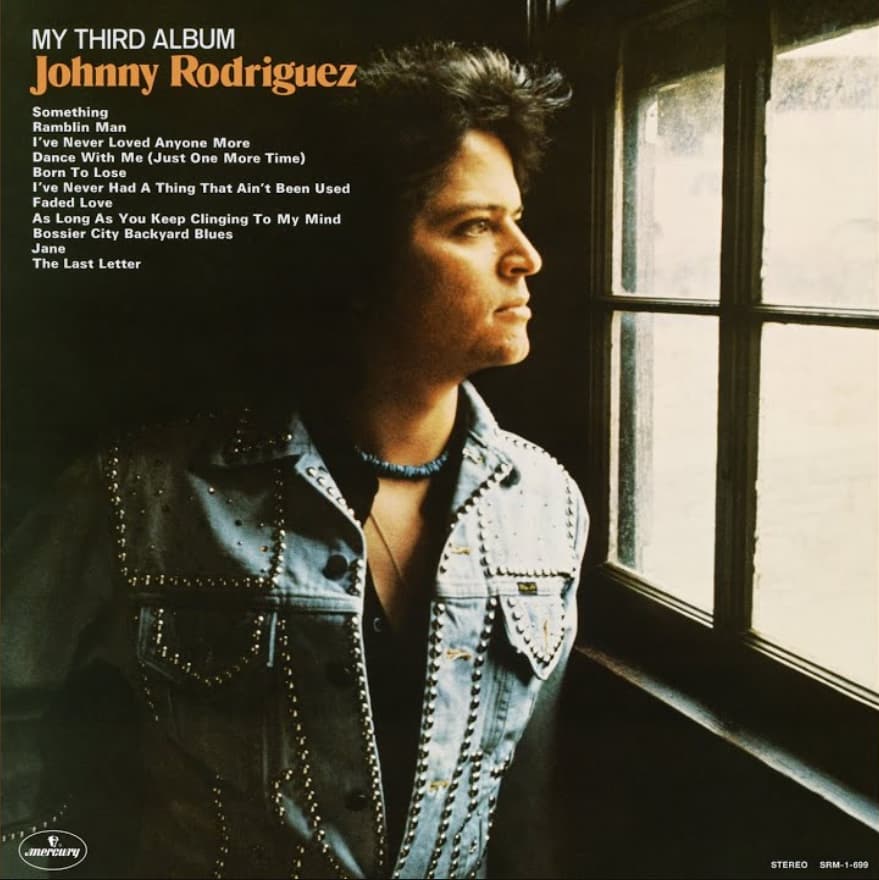
Ramblin Man: A ballad of wanderlust, loneliness, and the open road.
It’s been said that the best country songs are born from a place of genuine experience, a truth so raw it cuts right to the heart. And few songs embody this more profoundly than Johnny Rodriguez’s 1974 classic, “Ramblin Man.” This wasn’t just another hit; it was a deeply personal reflection from an artist who knew the life he was singing about all too well. While it may not have reached the stratospheric heights of a crossover smash, “Ramblin Man” was a significant success in the world of country music. It soared to the coveted number one spot on the Billboard Hot Country Singles chart in October of 1974, a testament to its powerful connection with the genre’s core audience. This was during a period of incredible momentum for Rodriguez, who was fresh off a string of top-10 hits, solidifying his place as a new voice in a genre that was, at the time, still dominated by legends.
The story behind this song is as poignant as the lyrics themselves. Johnny Rodriguez wasn’t just a singer; he was a man who had seen his share of hardship and transience. He had a tumultuous early life, marked by run-ins with the law and a constant sense of being on the move. This wasn’t the romanticized notion of a troubadour; this was the reality of a young man finding his way in the world, often alone. The song’s co-writer, Ray Pennington, understood this innate restlessness. Together, they crafted a narrative that wasn’t about a deliberate choice to be alone, but a sort of preordained destiny. The “Ramblin Man” isn’t a hero; he’s a soul adrift, bound by an unseen force to keep moving. He’s the embodiment of a life lived on the fringes, forever looking for a place to belong but knowing he never truly will. This is a far cry from the more upbeat, celebratory songs of the era. Instead, it offers a somber, introspective look at the cost of freedom and the ache of solitude.
The meaning of “Ramblin Man” goes beyond a simple tale of a restless wanderer. It’s an exploration of the human condition, of the conflict between our desire for connection and our need for independence. The lyrics, “Lord, I can’t stay in one place, you know I just can’t stand still,” aren’t a boast; they’re a lament. They speak to the internal struggle of a man who longs for a home and a steady love, but is compelled by a deeper, perhaps spiritual, need to keep moving. The song’s gentle, almost mournful melody, paired with Rodriguez’s rich, smooth vocals, only amplifies this sense of melancholic resignation. It’s a song that speaks to anyone who has ever felt out of place, who has ever felt the pull of the unknown calling them away from the comfort of the familiar. It’s a timeless ballad of the road less traveled, of the quiet sacrifices made in the pursuit of something undefined, and the bittersweet knowledge that some journeys never truly end. For those who grew up with this song, it wasn’t just music; it was a mirror reflecting a life lived with both a full heart and a hint of loneliness. It was a song for a different time, when the stories told in music felt as real and weathered as the people who sang them.